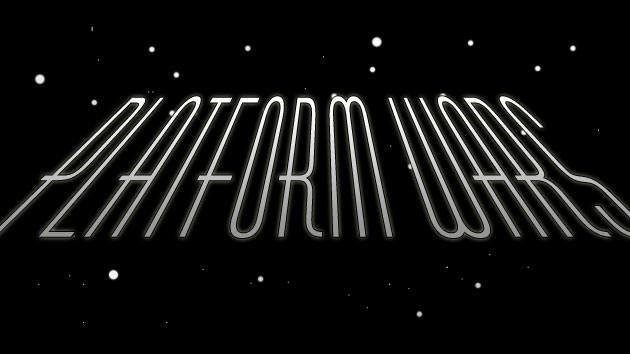The Platform economy is all around us, and reflected in the growing dominance of Digital businesses in all spheres of economic activity. In it’s simplest description a Platform business is one which efficiently connects consumers and buyers with sellers of products and services. Nothing new you would say, and a principle that is at the root of all Marketplaces, since possibly the beginning of economic activity
The difference is – the power and ubiquity of Digital Technology have given Platform businesses – the power, scale and wealth greater than that of several countries! Apple and Amazon, recently became $1 tn companies by market valuation. The top 5 Tech companies – FAMGA (Facebook, Apple, Microsoft, Google, Amazon) – at least 3 of which originated as “platform businesses” account for close to $4 Tn of market value, which is more than 40% of the Nasdaq 100 Value. It hasn’t been this way for long – only a decade ago, there was only 1 Technology company in the top 5 US companies by market cap – Microsoft. It is indeed an irony that FAMGA together employ just about a million people, 2 of them are helmed by Indian origin CEO’s – but have generated 50% more wealth than India’s GDP !
Startups around the world – Uber, Airbnb and Netflix have adopted the Platform model, disrupted entire industries and are creating value in a few years, equal to what took a lifetime for an earlier generation of entrepreneurs. This is inspiring other niche platform startups like our own IndusGuru, to create disruption and innovation in diverse sectors. However, the concentration of wealth and power in a few hands, has always had serious implications for the rest of the world. Be it in politics, or business. Governments and regulators have reacted, albeit slowly to the fast changing world of Technology.
These Platform Wars between Regulators and the Internet / Internet companies have taken different forms – and are being fought to protect 3 fundamental rights – the Right to Competition, Intellectual Property and Privacy. Let’s look at these Wars in a 5 Part series
Prequel: The Rise of Monopoly Platforms – Big vs Small
Exemplified in the United States vs Microsoft Anti-Trust case of 2001, which accused Microsoft of monopolistic practices by bundling its Internet Explorer browser, with MS-Windows on all Intel machines – thereby killing competing browser products like Netscape. At one point, this case even threatened to breakup Microsoft.
Microsoft’s dominance in the early 2000’s pales in comparison, to the dominance held by Google today in the Information, Search and Online advertising market
Almost 2 decades later in 2018, the familiar battle is playing out the same script with different characters. The EU vs Google, where the EU regulator has fined Google $5bn, for abusing its dominance with Android OS in forcing Smartphones makers, to pre-install Google Chrome. The script is uncannily similar. Only the stakes are enormously higher. The battlefield has moved from Enterprise Technology (that dominated our work-lives) to Consumer technology (that pervades our personal lives).
In upcoming articles in The Platform Wars trilogy, we will look at emerging conflict zones like the EU CopyRight Directive – popularly called the Link Tax and Upload Filter Laws, and Data Privacy Regulations – both of which have the capacity to transform the Internet as we know it.
#PlatformWars #FAMGA #MicrosoftAntiTrustCaseInUS #GoogleAntiTrustCaseInEU #DigitalBusiness

1 thought on “The Platform Wars – A Trilogy in 5 Parts”